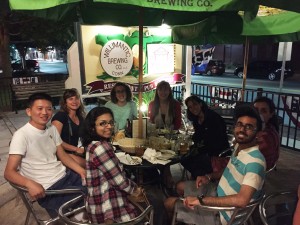A new species of Archidium described from Brazil:
Peralta D. F., A. M. Rios & B. Goffinet. 2015. Archidium oblongifolium (Archidiaceae, subg. Archidiella), a new species from Brazil. Cryptogamie-Bryologie 36: 211–215. pdf Google Scholar
Abstract: Archidium oblongifolium (Archidiaceae, subg. Archidiella) is proposed, described and illustrated as a new species based on collections from central Brazil. It is characterized by oblong leaves and lax leaf cells. A. oblongifolium is currently known only from three specimens from a single area, and could thus be considered vulnerable or threatened.
